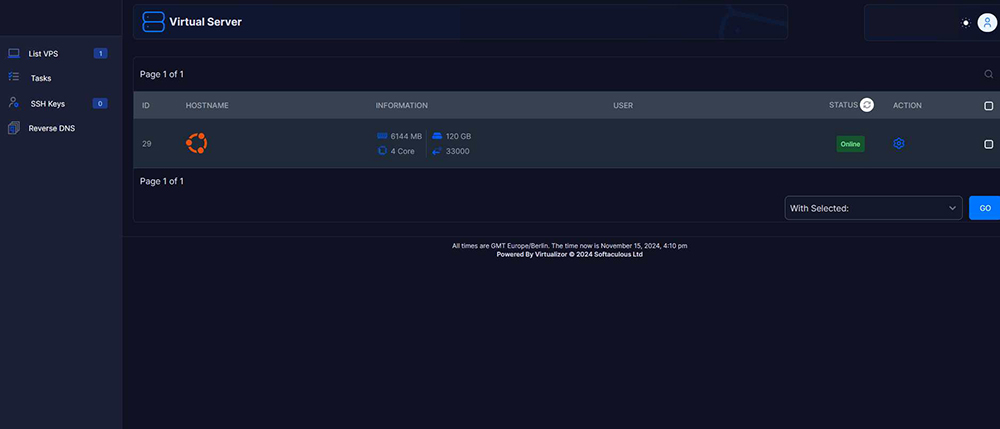VPS virtual server or shared virtual hosting
Website Hosting: Choosing Between VPS and Shared
When choosing a hosting for a website, it is important to understand the differences between the most popular options - virtual private servers (VPS) and traditional shared hosting. Each of them has its own characteristics, advantages and disadvantages that should be taken into account depending on the goals and scale of your project.
VPS for a website: what is it and why is it needed?
VPS (Virtual Private Server) is a virtual server that runs on physical hardware divided into several independent parts. Each virtual machine is allocated a separate resource, which provides greater flexibility and control compared to traditional hosting.
Advantages of VPS for a website :
1. Greater flexibility : Unlike shared hosting, VPS allows you to independently configure server parameters, install the necessary software and manage resources.
2. High performance : A virtual server provides guaranteed resources (processor, RAM, disk), which improves the speed of the site.
3. Better opportunities for growth : If your site starts to gain popularity, a VPS allows you to easily scale up your resources by adding more computing power or storage space.
Common Problems with Shared Hosting
At first glance, shared hosting is a cheap and easy way to host a website, suitable for small projects, but it has its limitations.
Disadvantages of Shared hosting :
1. Limited resources : A single server can host dozens, sometimes hundreds of sites, which can reduce performance, especially under high traffic conditions.
2. Lack of control : Users cannot customize the server to suit their needs, as all hosting management is taken care of by the provider.
3. Security : A split server can become vulnerable because other sites on the same server can be compromised.
Advantages of VPS over Shared Hosting
For larger projects where stability and control are important, choosing a VPS for your website will be the best solution. Here are some reasons why you should choose a virtual server:
1. Isolation : Each VPS runs in its own isolated environment, preventing other sites from affecting yours. With shared hosting, any problems on the server can affect all sites.
2. Scalability : If your site starts to grow, VPS can be easily expanded. On Shared hosting, you are limited by the hosting provider's capabilities.
3. Resource Management : On VPS you can control exactly how much resources your site consumes, unlike Shared where resources are divided between all users.
When should you choose VPS?
1. Growing Business : If your website is actively developing, attracts many users or requires specific server settings, VPS for the website will be the optimal choice.
2. Need for Security : For projects that require a high level of security, VPS will be much more reliable as you can control all aspects of security.
3. Large Resources : If your site handles large amounts of data, video, or other media files, then a VPS will provide the necessary processing power and storage space.
When should you use Shared hosting?
1. Small projects : If the site is a blog, business card or small online store, and large traffic is not expected, then shared hosting may be sufficient.
2. Budget Solutions : If your budget is limited, Shared hosting is an affordable option to start a project as it is cheaper than VPS.
3. Lack of technical knowledge : For beginners who do not want to delve into the technical aspects of server management, Shared hosting will be easier to use, since all server settings and maintenance are taken care of by the hosting provider.
When choosing between VPS and Shared hosting, the scale of your project, its performance and security requirements play an important role. While shared hosting is suitable for a small site with a limited budget, it is better to choose a virtual server for larger and more demanding projects. VPS for a site provides much more options for customization, protection and scaling, which makes it an ideal solution for a business that wants to grow.


